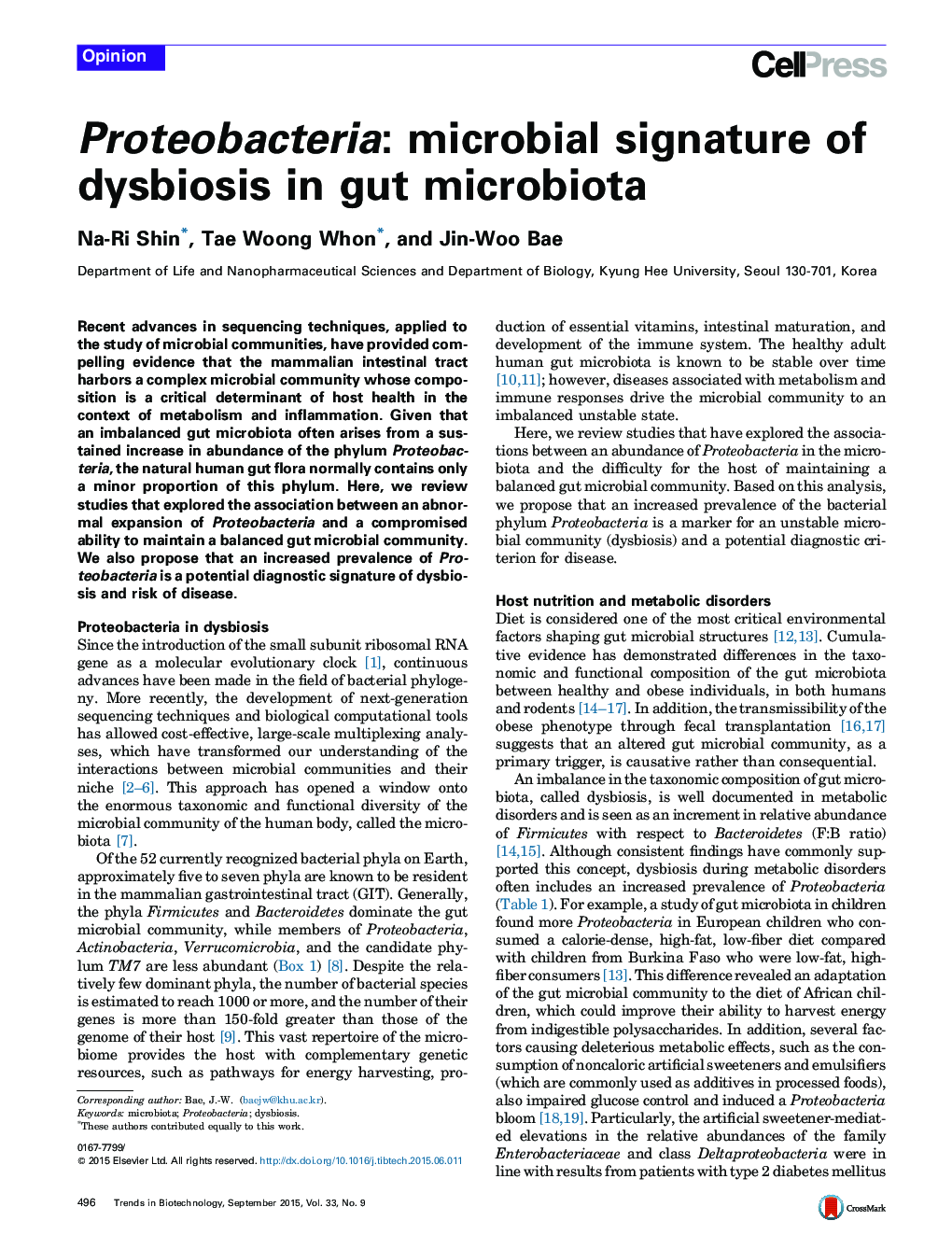| Article ID | Journal | Published Year | Pages | File Type |
|---|---|---|---|---|
| 36785 | Trends in Biotechnology | 2015 | 8 Pages |
•Members of the phylum Proteobacteria have a low abundance in the gut of healthy humans.•We provide an overview of correlations between a bloom of Proteobacteria and a diseased state.•We explain driving mechanisms for the uncontrolled expansion of the Proteobacteria population.•Proteobacterial load is suggested as a potential diagnostic criterion for dysbiosis and disease.
Recent advances in sequencing techniques, applied to the study of microbial communities, have provided compelling evidence that the mammalian intestinal tract harbors a complex microbial community whose composition is a critical determinant of host health in the context of metabolism and inflammation. Given that an imbalanced gut microbiota often arises from a sustained increase in abundance of the phylum Proteobacteria, the natural human gut flora normally contains only a minor proportion of this phylum. Here, we review studies that explored the association between an abnormal expansion of Proteobacteria and a compromised ability to maintain a balanced gut microbial community. We also propose that an increased prevalence of Proteobacteria is a potential diagnostic signature of dysbiosis and risk of disease.
